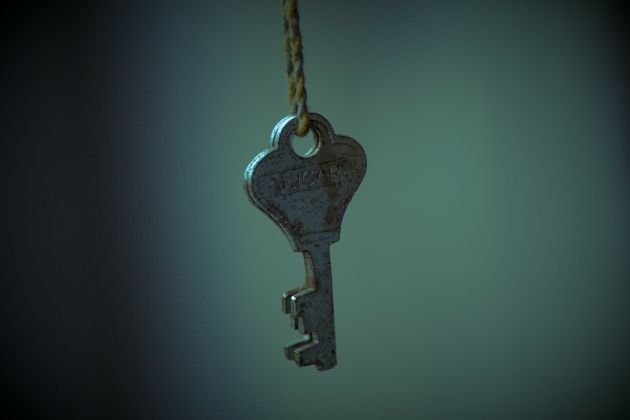Despite Hopeful’s reassurance, darkness returns. As one commentator perceptively puts it: ‘The ongoing misery of Doubting Castle reveals the weight of depression that can linger and lie even upon true believers. Doubts can be persistent. Discouragements can increase. Misgivings can re-emerge and reinforce, like iron bars holding us down. Even more mature believers are not immune. Christian was more seasoned in his pilgrimage than Hopeful. Yet Christian's suffering was more severe’.
Hopeful however, lives up to his name encouraging Christian with a reminder of past triumphs, the promise of fellowship, and the exhortation for patience. In their bleak perseverance they confound the Giant, surviving until Saturday evening.
As the well worn coin of wisdom reminds us: The darkest hour is just before the dawn. Destruction hangs over them. The threats of the Giant and the intent of his wife bear down on them. They are confronted with the remains of Pilgrims who have met their end in Doubting Castle. But the moment turns ‘on Saturday, about midnight’, when they began to pray. That’s something you might not have noticed they haven’t done over the last four days. But when they finally turn to it, the situation changes almost immediately. As Sunday morning dawns, so does the means of escape. Christian has all along had a key in his possession, Promise, that opens the door of the dungeon and their way out of the Castle. They flee, finding their way back to the King’s Highway where they set up a Pillar to warn other Pilgrims of the dangers of crossing over into By-path Meadow. The problem was never that they had been abandoned by their King, but that they had been distracted from the resources He had put at their disposal for the journey. Spiritual amnesia is a surprisingly common cause of failure in discipleship.
Bunyan’s offers counsel to those who struggle with spiritual depression. In short it is that we should not neglect the means of grace. Part of the problem of course is that we little desire them when we are in the grip of Despair, and still less do we expect engaging in them to make any difference. That is, after all, the nature of Diffidence. It is also what keeps us imprisoned in Doubt. As well as Hopeful’s fellowship and discourse, there are three key elements that orchestrate their escape. And there is a spiritual discipline required for each.
The first is prayer. Perhaps there is nothing we would rather do less than pray. It seems so pointless. It is so difficult to focus. It is impossible to know what to say. Perhaps I might suggest that this is where a familiarity with the Psalms serves us well. The full range of human emotion - including despair - find articulation in ways that are appropriate for prayer and worship, and that are shaped by our adoption into Christ.
The second is trust in the Promise(s) of God. I don’t think Bunyan is being trite here. It takes the Pilgrims days to get to the place where they can do this. The sense is that the Key is pulled out in desperation. But faith is nevertheless presented as the means to overcome doubt and despair. This is a battle. The impulse of Diffidence is towards unbelief, and Bunyan anticipates a genuine battle that can only be won in the context of prayer.
Third, and often overlooked is the fact that their escape happens on a Sunday. The Giant struggles throughout with the light, and on this Lord’s Day, as the Son rises on the first day of the week, he again falls into one of his fits. It is hard to imagine that Bunyan doesn’t expect us to make the connection with the gathering of the Church. It is on a Sunday morning that the they find they have the capacity to renew their faith. This corporate dynamic of our faith, enabling us to do in fellowship with others what we cannot do on our own, is deliberate and is rooted in the wisdom of God. It is strange that in seasons of spiritual darkness we tend to withdraw from the very structures God has put in our life to liberate, restore and sustain us. The one place we can go to meet God is the one place we most quickly neglect.
I guess that is the nature of the problem - we doubt the goodness and wisdom of God. But in doing so, we often cut ourselves off from His means of grace. Engrained habits, close spiritual friendship, understanding the place of discipline in our discipleship all help. Through the, the Spirit might just enable us to come to Christ at precisely the point we don’t want to.
Questions to ponder:
How can you structure your life to make sure that when you need them you will be able to access the means of grace?
How can you erect a ‘pillar’ to warn others of the dangers of wandering from the Path and ending up in Doubt, Despair and Diffidence?

